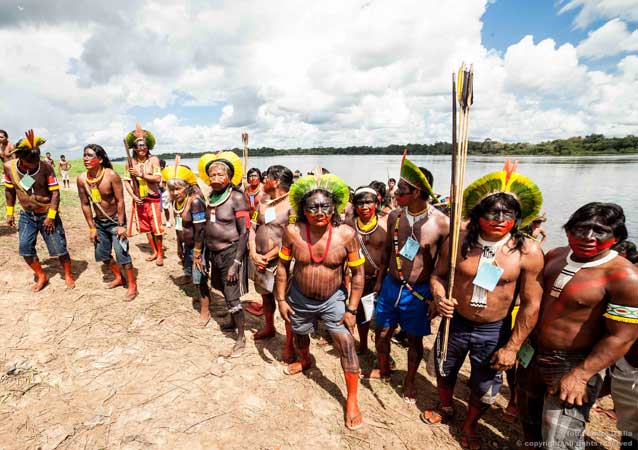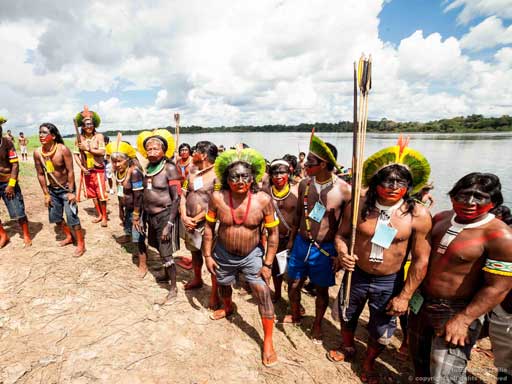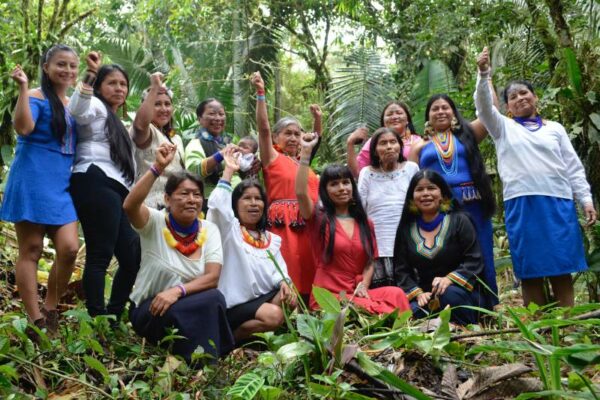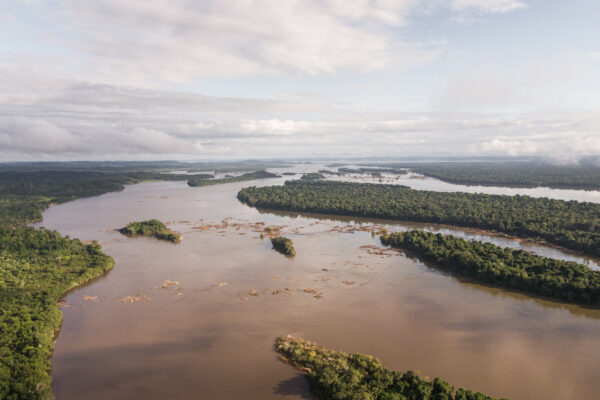
Peace and Respect
in the Amazon!
Urge President Dilma to find a peaceful solution to the Belo Monte conflict and respect indigenous rights!
Four hundred chiefs and warriors of the Mebengokre (Kayapo) people met between June 3rd and 5th 2013 in the village of Kokraimoro on the Xingu River in the Kayapo Indigenous Territory, Para state, to discuss serious threats to indigenous rights that are being considered by the Brazilian government.
The Kokraimoro meeting was an entirely Kayapo event that was organized by their three main representing organizations: “Protected Forest Association”, “the Raoni Institute” and “the Kabu Institute”. The meeting was attended by chiefs and warriors from all 45 Kayapo villages and settlements as well as guests from their Panara, Tapayuna and Juruna indigenous neighbours.
The main objective of the meeting was to re-enforce Kayapo unity by bringing together different sub-groups that live widely scattered throughout 110,000 sq km of Kayapo territories in the states of Pará and Mato Grosso, Because of large distances and lack of access, the various Kayapo groups rarely have an opportunity to meet. Given the enormity of proposed setbacks to the rights of indigenous people and looming dam building on the Xingu river, this meeting had become a priority for all Kayapo.
On the first day of the meeting, Kayapo leaders reviewed the history of their struggle for the demarcation of their lands and for inclusion of important indigenous rights in the Constitution of 1988. Prominent leaders who actively participated in this struggle during the 1980’s and 1990’s such as Raoni, Megaron, Payakan and Tuire spoke about the importance of these achievements. They explained the intensity of this struggle to the young who were born with their lands already demarcated and their rights guaranteed in the constitution.
However, these achievements are under serious threat. Since 1988 when the constitution was signed, no time has been so unfavorable to indigenous people as today; and tomorrow promises to be worse. Indigenous lands are now in the sights of large corporations including agro-business that dominate the Brazilian Congress and mainstream media.
On day two of the meeting, the Kayapo reached a general understanding of the powerful emerging new threats to their land and constitutional rights. Young Kayapo leaders with a better grasp of Portuguese and functioning of the national society explained to their relatives the proposed legislative changes before the national congress including PEC 215, Ordinance AGU 303, PL 1610, PEC 237 and Decree No. 7,957. These changes are designed for corporations to gain access and control of indigenous land. The Kayapo also elaborated on the threat the Belo Monte Dam mega-project poses to their lands and the forests that their communities have managed sustainably and protected for decades. The Belo Monte project requires upriver holding dams to be built on the Xingu river within Kayapo territory.
The last day of the meeting was devoted to Kayapo unity and to producing a position and strategy for meeting upcoming challenges. Kayapo leaders drafted a “manifesto” in which they declared their unwavering opposition to legislative attacks and to dam building. They also affirmed their solidarity with other indigenous groups who are fighting the same battle to retain control over their lands and maintain a dignified relationship of equality with national society.
With government that invites no discourse with indigenous people, without representation in congress and with media that predominantly disqualifies indigenous people, the Kayapo feel that somehow they must make themselves heard. At the Kokraimoro meeting, a united Kayapo decided to seek cooperation with the indigenous movement and to bring attention to the injustices they face through road blockades and occupation of construction sites.














